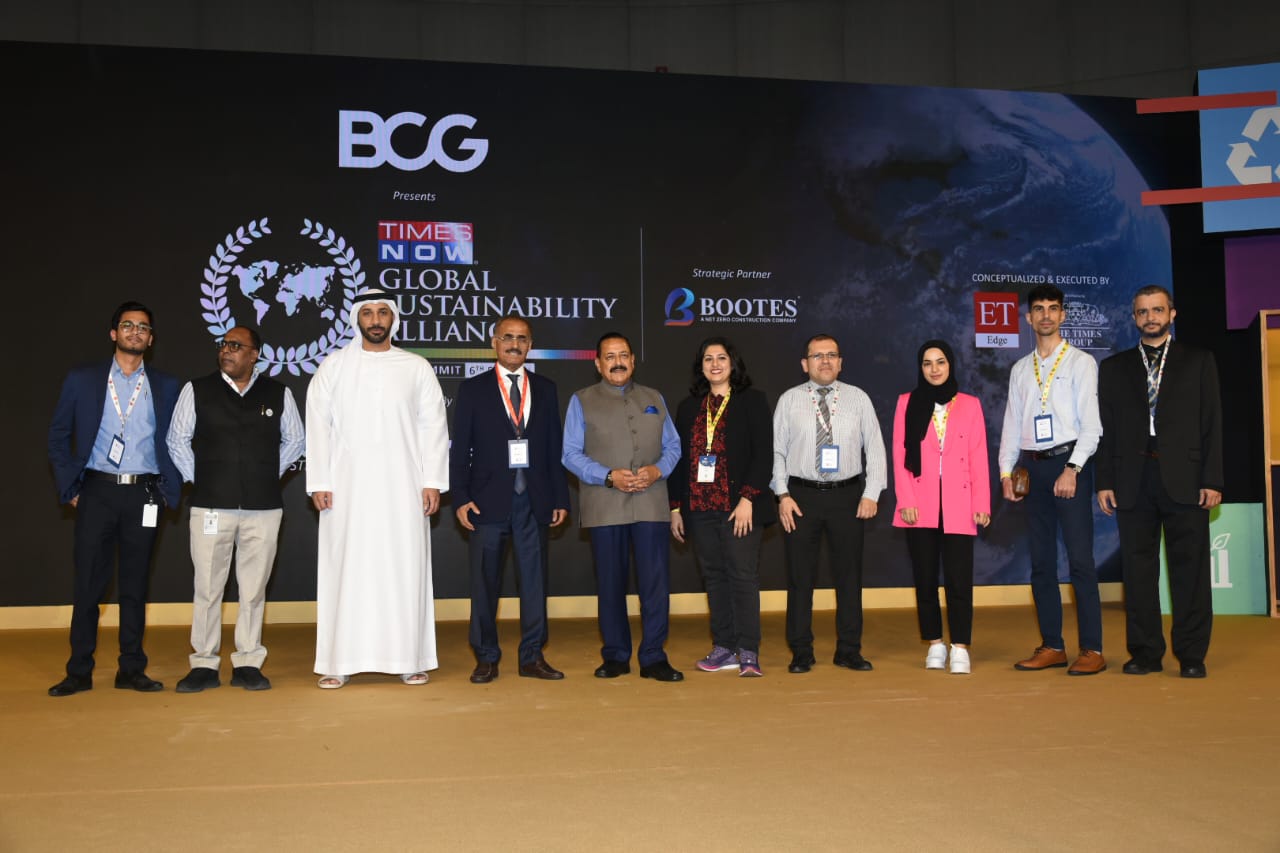New Delhi: Union Minister of State (Independent Charge) for Science & Technology, Dr. Jitendra Singh, called for decisive action to address the immediate realities of climate change, urging global collaboration to meet science-based climate targets. Speaking at the 6th edition of the Times Now Global Sustainability Alliance’s SDG Summit 2024, themed “Game Changing India’s Science-Based Targets for Climate Change,” Dr. Singh reaffirmed India’s commitment to balancing its rapid economic growth with sustainable development.
“Climate change is no longer a distant threat—it is an immediate reality impacting lives, economies, and the future of our planet,” said Dr. Singh, stressing the urgent need for collective action to mitigate its effects. He outlined India’s significant role in combating climate change through ambitious science-based targets that align with the Paris Agreement goals of limiting global warming to well below 2 degrees Celsius, with aspirations to restrict it to 1.5 degrees.
Key Climate Targets for India:
- Reduction in Greenhouse Gas Emissions: India aims to reduce its emissions intensity by 33-35% by 2030, using 2005 levels as a baseline.
- Non-Fossil Fuel Energy Capacity: The country is committed to increasing its non-fossil fuel energy capacity to 500 GW.
- Net-Zero Emissions: India has set an ambitious goal to achieve net-zero emissions by 2070.
Dr. Singh highlighted that collaboration across government, industry, academia, and civil society will be critical to achieving these goals. Innovation, particularly in renewable energy, sustainable agriculture, and green technologies, will be at the heart of India’s climate strategy. “Under Prime Minister Narendra Modi’s leadership, we are supporting research and development to drive the innovations necessary for a sustainable future,” Dr. Singh added.
National Action Plan on Climate Change (NAPCC)
The minister emphasized India’s National Action Plan on Climate Change (NAPCC), launched in 2008, as the cornerstone of the country’s climate policies. The NAPCC includes eight key missions, each addressing critical aspects of climate adaptation and mitigation:
- National Solar Mission: Aims to achieve 100 GW of solar power capacity by 2022.
- National Wind Energy Mission: Focuses on expanding wind energy technologies.
- National Mission for Energy Efficiency: Promotes programs like Perform, Achieve and Trade (PAT) to enhance energy efficiency.
- National Mission on Sustainable Habitat: Aims to promote energy-efficient buildings, urban planning, and waste management.
- National Water Mission: Focuses on water conservation and equitable distribution.
- National Mission for Sustaining the Himalayan Ecosystem: Protects the fragile ecosystem through research and monitoring.
- National Mission on Agricultural Adaptation: Builds resilience in agriculture through sustainable practices and crop diversification.
- National Mission on Green India: Seeks to increase forest cover and restore ecosystems.
Sector-Specific Strategies
Dr. Singh also outlined India’s sector-specific strategies that bolster its climate goals:
- Energy: Investments in renewable energy, smart grids, and energy storage technologies.
- Transportation: Promotion of electric vehicles (EVs) and enhancement of public transportation.
- Agriculture: Focus on climate-resilient crops, improved irrigation systems, and sustainable farming practices.
- Urban Development: Green building initiatives, sustainable urban planning, and waste management programs.
- Water Resources: Emphasis on water conservation, rainwater harvesting, and enhanced river basin management.
- Disaster Management: Strengthening resilience against climate-induced disasters with advanced early warning systems and community preparedness.
Call to Action
Dr. Singh urged every citizen to take part in addressing climate change, emphasizing that even small lifestyle changes can have a significant impact. He encouraged a cultural shift towards sustainability, stating, “We must foster a culture of sustainability in our daily lives and collaborate to build a resilient, sustainable future.”
He concluded by congratulating the organizers of the SDG Summit and wishing them success in their continued efforts to promote global sustainability.
With India’s firm commitment to climate action and innovative strategies, the country is poised to lead the way in global efforts to combat climate change while driving sustainable development.





